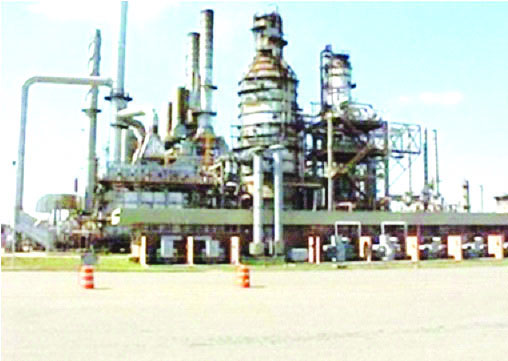Again, P’Harcourt refinery shuts down after $1.5bn rehabilitation

The Port Harcourt Refinery, one of Nigeria’s largest oil processing plants, has shut down once again, despite undergoing a massive $1.5 billion rehabilitation. This shutdown has raised serious concerns about the effectiveness of the rehabilitation efforts and the broader challenges facing Nigeria’s oil and gas sector. The refinery, which is critical to Nigeria’s domestic fuel production, had been expected to improve its output significantly following the rehabilitation, but the latest shutdown calls into question the sustainability of past and future efforts to revamp the country’s aging refineries.
Details of the Shutdown:
The Port Harcourt Refinery, which is owned by the Nigerian National Petroleum Corporation (NNPC), has faced numerous operational issues over the years, including equipment failures, inadequate maintenance, and outdated infrastructure. These challenges have led to the refinery’s inability to meet Nigeria’s domestic fuel demand, forcing the country to rely heavily on imported refined petroleum products.
In a bid to address these issues, the Nigerian government allocated $1.5 billion for the rehabilitation of the Port Harcourt Refinery, with the aim of returning it to full capacity. The rehabilitation, which involved overhauling the refinery’s aging infrastructure and upgrading its refining technology, was seen as a critical step in Nigeria’s drive to become self-sufficient in fuel production.
However, despite these significant investments, the refinery has once again been forced to shut down. According to reports, the latest shutdown is due to a combination of technical challenges and operational difficulties that have plagued the refinery since the completion of the rehabilitation process. Industry experts have pointed out that while the rehabilitation efforts were substantial, they may not have addressed some of the deeper systemic issues that continue to affect the refinery’s performance.
Implications for Nigeria’s Oil Sector:
The recurring shutdown of the Port Harcourt Refinery is a major blow to Nigeria’s oil and gas sector, which is already grappling with some challenges, including fluctuating oil prices, insecurity in the Niger Delta, and inefficient refineries. The country, which is one of the largest oil producers in Africa, has long struggled to meet its domestic fuel needs, despite being a major exporter of crude oil.
The shutdowns not only exacerbate the country’s fuel supply issues but also contribute to the rising costs of petroleum products. Nigeria has been forced to import a significant portion of its refined products, a situation that has placed a strain on the nation’s foreign exchange reserves. The country’s reliance on imported fuel is also seen as a major contributor to the high cost of living, as fuel prices often impact transportation and the cost of goods and services across the economy.
With the Port Harcourt Refinery now offline, attention is likely to shift to other refineries in the country, including the Warri and Kaduna refineries, which have also faced similar operational difficulties. The government’s ability to address the issues at these facilities will be crucial in determining the future of Nigeria’s refining capacity and its ability to meet the demands of the domestic market.
Questions About the $1.5 Billion Rehabilitation:
The shutdown of the Port Harcourt Refinery raises important questions about the efficacy of the $1.5 billion rehabilitation project. Critics argue that despite the substantial amount of money invested, the results have been disappointing. Some have suggested that the rehabilitation process may have been poorly managed or that the funds were not used efficiently.
In response to these concerns, the government and officials from the NNPC have pointed to the complexity of rehabilitating such a large facility. They have assured the public that steps are being taken to address the refinery’s operational challenges and that the situation will be resolved in due course. However, skepticism remains, with many wondering whether further investments in the country’s refineries will yield the desired outcomes.
The Future of Nigeria’s Refineries:
The repeated failures of the Port Harcourt Refinery underscore the urgent need for Nigeria to rethink its approach to refinery rehabilitation and overhaul its energy policy. While rehabilitation projects may offer short-term solutions, they have not proven to be a permanent fix to the country’s long-standing refinery problems.
Many experts have called for a more comprehensive strategy, including the privatization of refineries, the construction of new, more efficient facilities, and a focus on developing the country’s downstream oil and gas sector. Additionally, addressing the root causes of inefficiency, such as corruption, mismanagement, and inadequate regulatory oversight, will be crucial if Nigeria hopes to achieve long-term fuel self-sufficiency.
In conclusion, the latest shutdown of the Port Harcourt Refinery after a $1.5 billion rehabilitation is a stark reminder of the ongoing challenges facing Nigeria’s oil and gas sector. While significant investments have been made to revive the country’s refineries, the repeated failures of these facilities highlight the need for more effective solutions. As the country continues to struggle with fuel supply issues, it will be crucial for the government to take decisive action to address the underlying problems that have hindered the success of refinery rehabilitation efforts in the past.





Responses